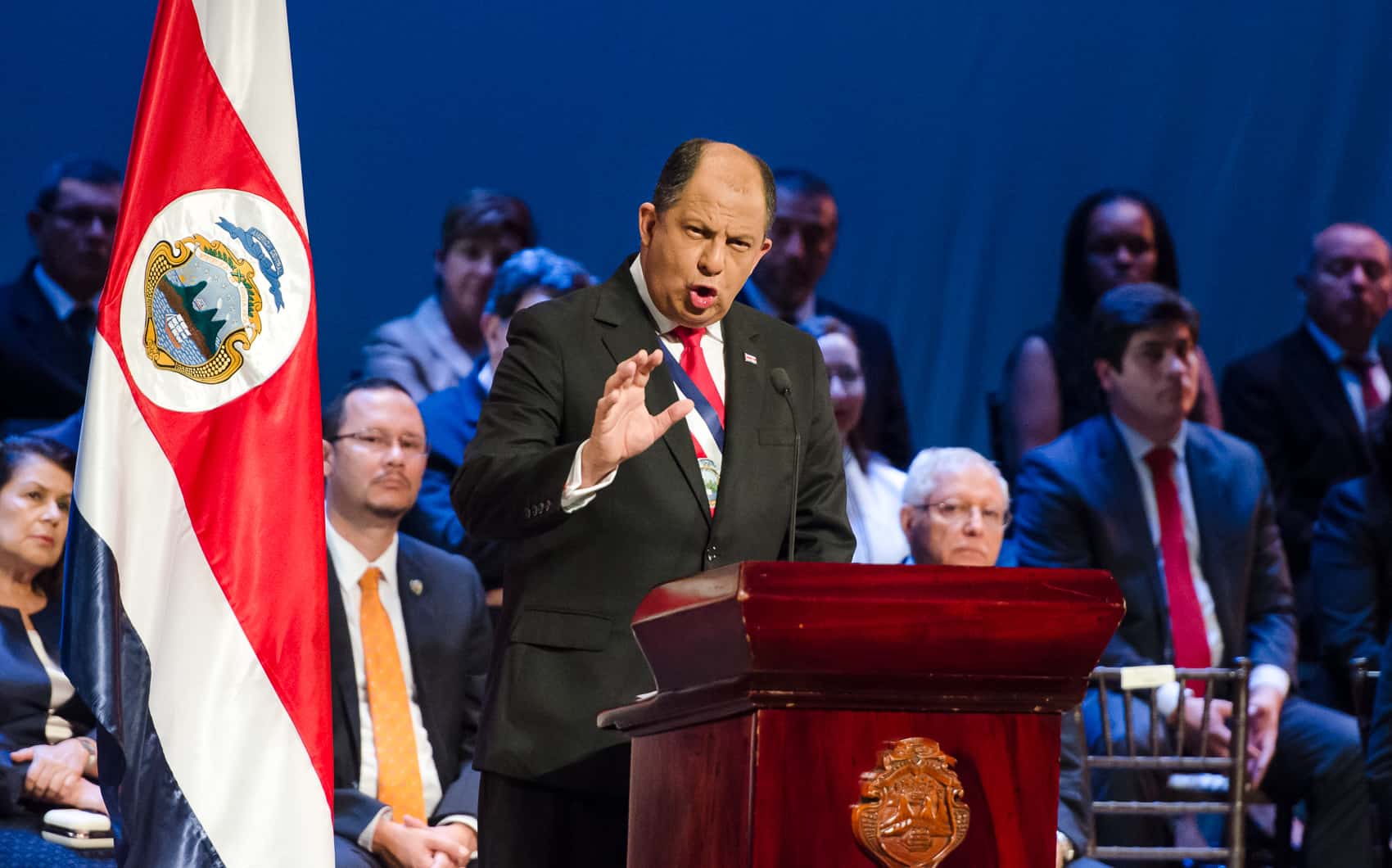President Luis Guillermo Solís claimed that the Costa Rican government had lost ₡60.1 billion – $112 million – to corruption in the past 15 years, and he rattled off several of the guilty parties during a one-hour speech Thursday night to mark the first 100 days of his administration.
In the biting assessment – in many ways the first of its kind here – Solís, a 56-year-old former professor, historian and political scientist who took office in May, read a jeremiad of corruption, mismanagement and incompetency, which he attributed to previous administrations and a long-tolerated culture of political iniquity.
“In the majority of public offices, the disorder is unimaginable, the inefficiency intolerable, the irresponsibility unexpected,” Solís told an audience of nearly 1,000 people at the elegant and antiquated Teatro Melico Salazar in downtown San José. The theater was Solís’ second choice for a venue after lawmakers blocked the president from delivering the address in the Legislative Assembly. Of 57 lawmakers, fewer than 35 were in attendance at Thursday’s speech.
Solís said the losses in public revenue due to corruption totaled 7 percent of the country’s gross domestic product.
“The state has been kidnapped by the political class,” Solís said, describing a culture of irresponsibility and entitlement by public officials in recent administrations. The president went on to correlate drops in Costa Rica’s United Nations Human Development Index in recent years to the consequences of corruption and mismanagement in government.
Solís said the full list of offenses in the report, available for download (in Spanish), would takes hours to read. Some of the more egregious cases he mentioned included:
- 117 vehicles that have gone missing from the Casa Presidencial;
- Pensions paid by the Labor Ministry to the deceased;
- Chaos in the state-run railroad monopoly, including operating without budgets, inventories or outside audits;
- A Public Security Ministry that was 38 years late paying police for overtime on holidays;
- The Culture Ministry’s “multimillion-dollar” spending on events contracted to one company, presumably without public bidding;
- Consultants who doubled their salaries at the Education Ministry and other agencies by over-billing while thousands of teachers went without pay;
- Taxpayer money spent on upkeep at a luxurious beach house for one government executive.
“Only by shining light on these offenses can we hope to avoid future cases of such corruption,” Solís said.
The president urged the Prosecutor’s Office and the Comptroller General to be vigilant and investigate similar cases, but he did not call for specific prosecutions or criminal investigations.
Solís called for better public management and highlighted his efforts to close the deficit, which he said approached 6 percent of GDP, and create quality jobs. And he ranked Costa Rica among the worst countries in Latin America in the efficient management of Inter-American Development Bank loans.
Solís said his administration was developing a mechanism that would improve government transparency.
“Inexorably we’re headed for a government that’s open and transparent,” he said.
He also vowed to fight tax evasion, contraband and drug trafficking, and create more than 200,000 jobs in the next four years. “We want more wealth to better distribute it,” he said, referring to Costa Rica’s growing social inequality in recent years.
The president extended an invitation to the leaders of Legislative Assembly to meet in the Casa Presidencial in southeastern San José in September for a dialogue and to discuss his proposals.
Solís noted that three months was a short time to hold office, and he asked citizens to be patient and grant him more time to meet his goals.
“Change is never easy,” Solís said. “To the echelons of power, I ask that you let me govern, because nothing will stop me from fulfilling my mandate to the people.”






